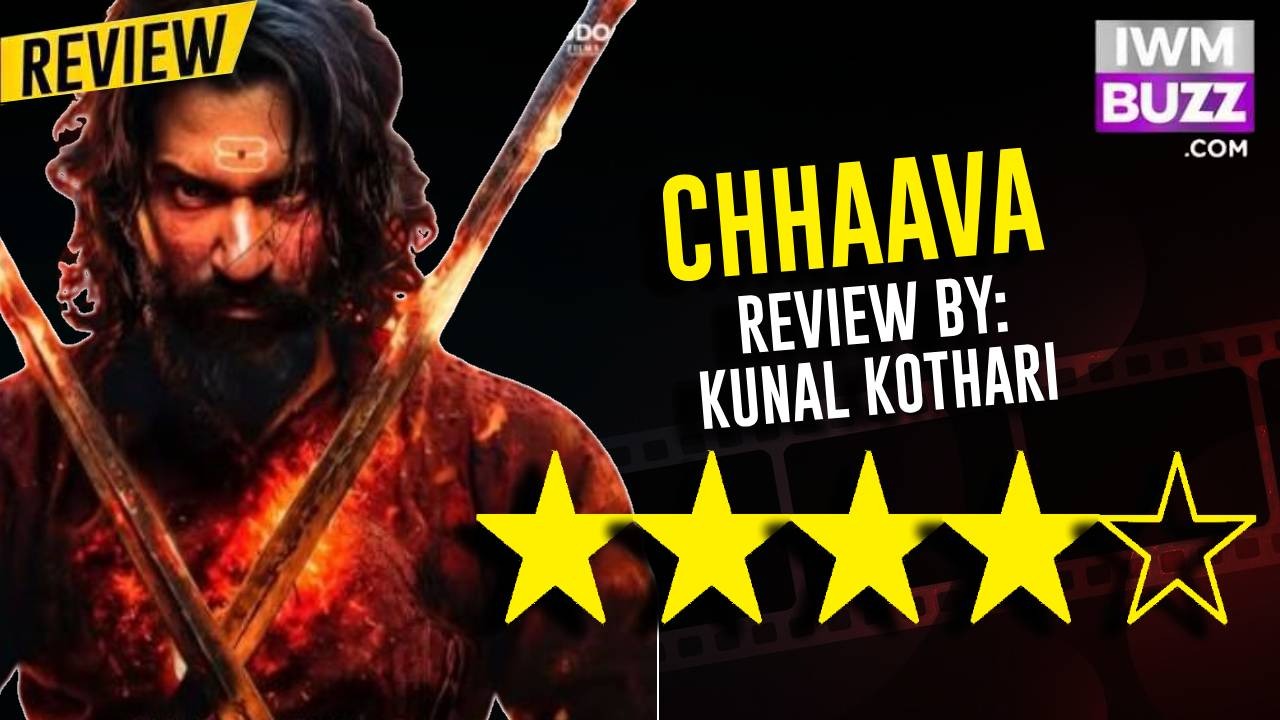Rating- **** (4/5)
Starring: Vicky Kaushal, Rashmika Mandanna, Vineet Kumar Singh, Ashutosh Rana, Divya Dutta, Neil Bhoopalam & more
Directed by: Laxman Utekar
Produced by: Maddock Films
Vicky Kaushal, in the few interviews he gave for Chhaava, repeatedly spoke about the only direction he received from Laxman Utekar: “Be a lion.” A perplexing brief, not just for Kaushal but for anyone trying to understand how one embodies an untamable force.
Yet, watching Chhaava, you realize that is exactly what he becomes. Not just in a literal sense—where he fights an actual lion—but in every possible frame, where his ferocity, fearlessness, and sheer will make him a beast in battle. A lion that refuses to be caged, a lion whose roar echoes beyond the battlefield, a lion who terrorizes enemies with sheer presence.
Set in the aftermath of Chhatrapati Shivaji Maharaj’s death, Chhaava unfolds as Aurangzeb (Akshaye Khanna) wrestles with what should be a moment of triumph for the Mughal empire. But lurking in the shadows is Shivaji’s son, Chhatrapati Sambhaji Maharaj, a warrior who does not merely fight battles—he obliterates.
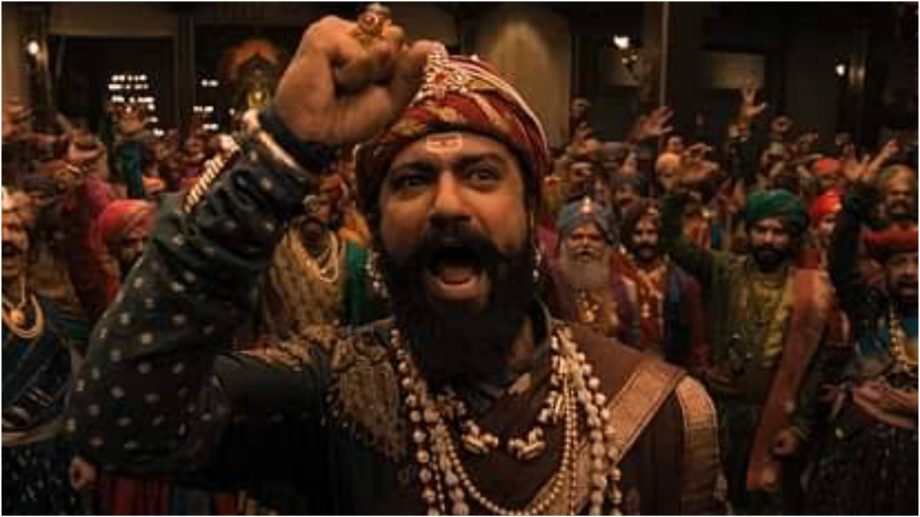
His raid on Burhanpur leaves nothing but ruin, serving as a harrowing prologue to the clash between the seasoned Mughal war strategist and the relentless Maratha leader. Aurangzeb, a man whose name is synonymous with empire-shattering campaigns, now finds himself up against a force that is more animalistic than human, a storm that cannot be quelled.
The first half of Chhaava struggles to gain momentum, weighed down by its slow-burn approach, leaving one to wonder if the build-up is worth the crescendo. Then, unexpectedly, Laxman Utekar flips the narrative on its head. The second half explodes with a visceral intensity that catches you off guard—not in the way you anticipate, but in a way that shakes you to your core.
And here’s where Utekar’s real masterstroke lies: he dares to craft a historical spectacle that doesn’t borrow from the established grandeur of a Sanjay Leela Bhansali epic. Yes, the scale exists, but Chhaava thrives in its rawness, in its unpolished brutality. The film doesn’t romanticize war; it makes you feel its weight, its chaos, its blood-soaked reality.
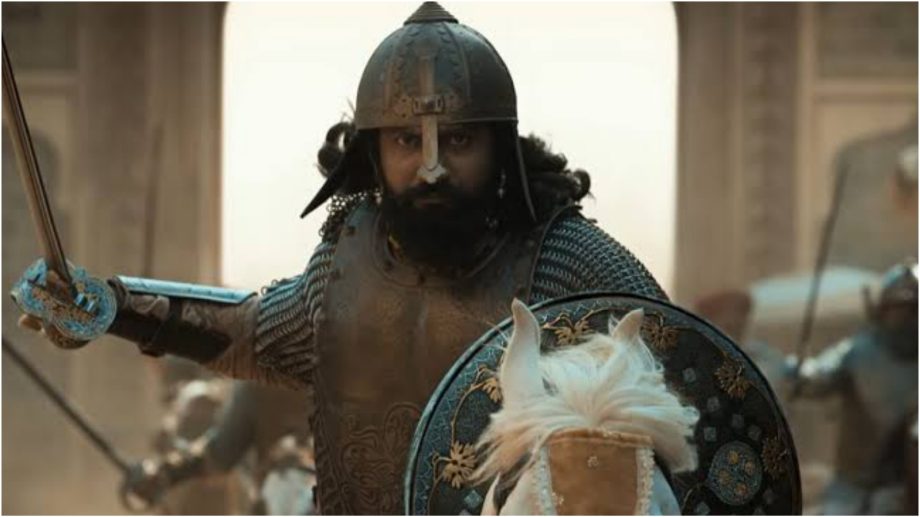
Men don’t just fight—they collide in stampedes of flesh and steel, bodies flung across rivers that turn crimson. The battlefield is an arena of bedlam, heightened by a relentless, pulse-pounding background score that refuses to let you breathe. Sambhaji’s mastery of guerrilla warfare is showcased, but never indulged in—because Chhaava isn’t here to glorify tactics.
It makes you experience them, dragging you into a world where intelligence is a survival instinct, not a cinematic flourish. The last half hour? Unlike anything witnessed in mainstream historical cinema. A crescendo that isn’t about grand posturing, but about something deeper—courage, sacrifice, and an undying devotion to Swaraj.
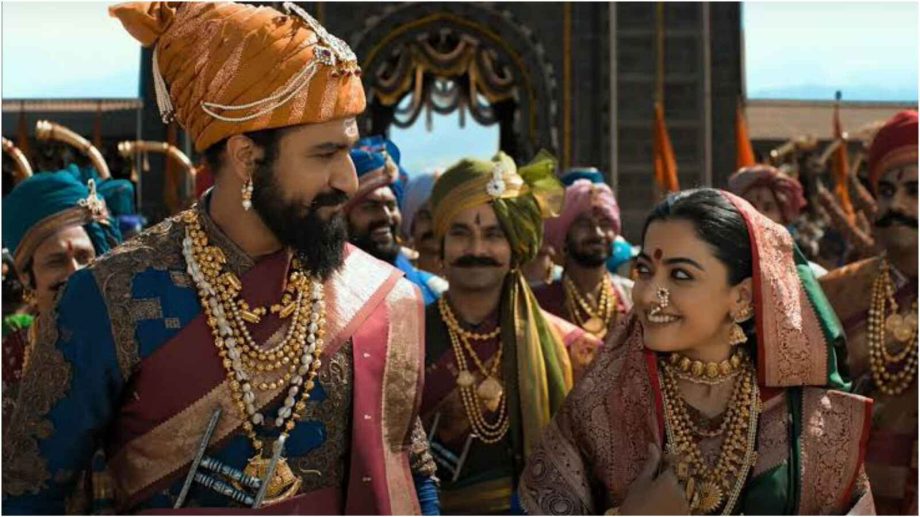
No adjective can truly encapsulate what Vicky Kaushal achieves here. Yes, he is a towering force, his speeches electrifying, his presence enough to command fear and respect. But beyond the warrior, there’s the son who mourns his father, the man who clings to his loved ones amidst the chaos. Kaushal dances between these shades effortlessly—one moment, an untouchable lion, the next, a vulnerable man yearning for connection.
Despite Utekar’s repeated justifications for casting Rashmika Mandanna as Yesubai, her South Indian accent undercuts her sincerity. She tries, she commits, but there’s a disconnect. In contrast, Vineet Kumar Singh is an absolute revelation, easily the film’s strongest performer after Kaushal and Khanna. Time and again, Singh proves his mettle, and yet, he remains criminally underutilized in mainstream cinema.
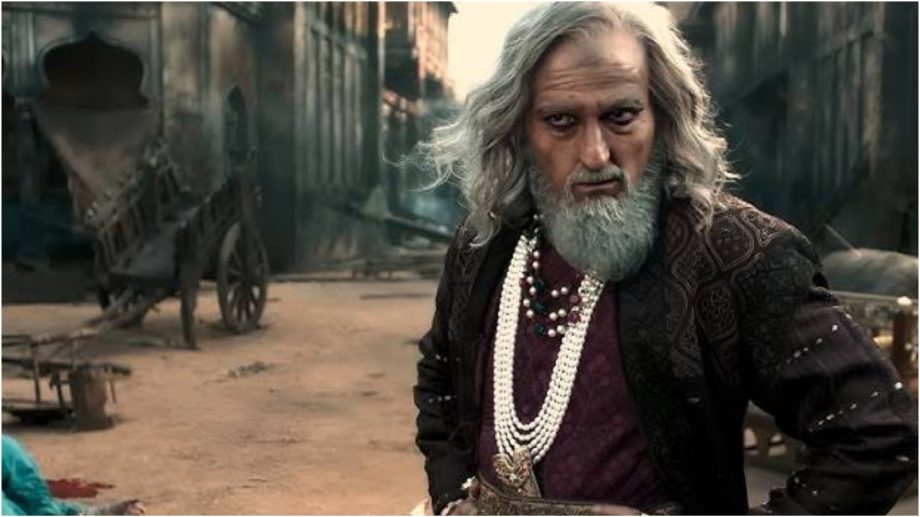
And then there’s Akshaye Khanna—subdued, calculated, embodying an Aurangzeb who is old and weary, yet lethal in his stillness. There’s an intentional languor to his portrayal, a quiet menace that perfectly counterbalances Kaushal’s tempestuous energy.
On a technical level, Chhaava soars, particularly in its meticulous continuity. The prosthetics, the wounds, the grime—it all remains consistent, an impressive feat in a war film where every detail matters. The only misstep? The editing.
Some sequences feel jagged, awkwardly cut, stripping scenes of their full impact. And then there’s the missed opportunity of Divya Dutta’s Soyarabai—a character teased as formidable but ultimately left underdeveloped, a glaring void in an otherwise rich narrative.
Chhaava isn’t just a film; it’s a statement. It boldly steps outside the polished confines of Bhansali and even Ashutosh Gowariker’s historical storytelling, instead embracing the grit, the rage, and the unfiltered emotions of war.
It’s a gamble by Dinesh Vijan’s Maddock Films, a deviation from the expected, but one that pays off by delivering a cinematic experience that punches you in the gut and refuses to let go.

